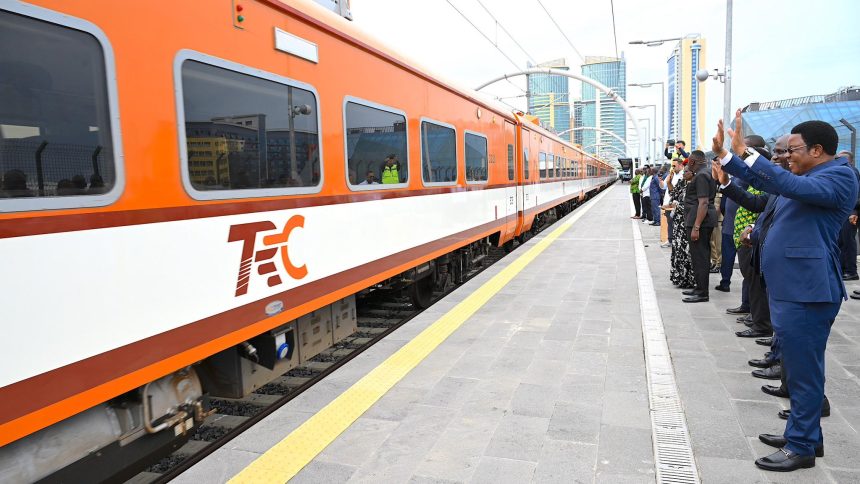Director-General of the Nigeria Employers’ Consultative Association (NECA), Adewale-Smatt Oyerinde, spoke with members of the Labour Writers’ Association of Nigeria (LAWAN) on issues bordering on the economy and challenges businesses are currently facing, among others. GLORIA NWAFOR was there.
What is your assessment of the economy and the reforms by the current administration?
Generally, the economy remains what it is. The high interest rate remains a challenge for organised businesses.
The multiplicity of tariffs, levies and fees also remains a major challenge. But in the midst of that, we also saw the new electricity tariffs, which changed the whole dynamics, and the reality of it is, that most of the gains that the government will probably want to gain, those new tariffs are wiping them off. The astronomical electricity tariff should be reversed or reviewed downward. There has been an argument that it doesn’t help anybody if government revenue is increasing, but household revenue or disposable income of the citizens is reduced. This contradicts the whole essence of government, which is to provide for the citizens, to protect them and to make life better for them.
While we support the government’s reforms, however, amid the reforms, the government should do the needful and provide certain relief along the way. We are hoping that private businesses will get some level of relief. In the marathon of the reforms, we need a break in the form of relief. It all boils down to keeping production and consumption going. There is a need to empower people to enable them to consume because it is in their ability to consume that businesses can continue to produce, and in that circle, there is Gross Domestic Product (GDP) growth vis-a-vis employment generation and insecurity would be tackled.
So, just get that cycle of production and consumption going, then you will have significantly solved a lot of economic issues. The government should deal with the issue of transportation and food, and that would make the citizens successfully deal with major areas where salaries are going. Once the economy starts to grow, the naira will become strengthened. The agitation we are having about the minimum wage is not the figure but what the figure can buy. In a capitalist environment, what drives value is what we have. If we are running a socialist economy, we say, yes, you must share what is equal. Nobody shares what is equal. We have promoted mediocrity; we keep promoting what does not matter. All of us must create value to get what we want.
Many businesses are shutting down and one of their major claims is high operating costs, especially, on energy and high electricity tariffs. What steps is the association taking to ensure businesses remain in the country?
The electricity tariff is part of the contradictions. The government is giving the relief with one hand and still collecting the relief back with the second hand. The government cannot blame the ostrich and say it is the Nigeria Electricity Regulatory Commission (NERC). They are the only type of regulation so let them deal with it.
The Federal Government is accountable for businesses shutting down and multinationals leaving the country due to the harsh operating environment. When we say businesses are paying over 60 different taxes, levies, and fees, some might think it is just 60, don’t know that at all and Small and Medium Enterprises (SMEs) are probably the biggest group. Globally, SMEs are the biggest employers of labour and if you don’t protect them, you destroy the economy. A company that is paying about N2 million as electricity bill, when the new tariff came, the first bill they gave them in April was about N15 million. Then, the N13 million difference, where are they going to put it? It must go somewhere. So, for us, it is simple arithmetic, if you cannot pay, no gun can be put in your head to pay. That is the reality of it. If you cannot pay, then you cannot pay. If you cannot pay and the gun is put in your head to say you must pay, then the most practical thing for you to do is to reduce staff strength and when you want to reduce staff strength, you are creating further problems for the economy, because the rate of insecurity will probably increase.
Employers and organised labour are expected to be social partners, but this was not observed during the minimum wage negotiations. There were conflicts of interest without alignment, why was this so?
If you take out a conflict from industrial relations, then you do not have industrial relations again. Inherent in this is the conflict of interest. It is not every time we must align. Perhaps we disagree to agree, and our position and long-term objective are to protect labour because the more we employ, the more members organised labour have. The more the private sector downsizes, it is labour that it would affect. For all of us, our strength is in our membership. Our long-term objective is to protect the direct and potential members of labour.
The issue of conflict is normal. There are many battles we have to fight together. While we do not agree sometimes it is because we are neither an affiliate of labour nor the government. We are independent and we extract our independence within the context of enterprise sustainability, that is the direction for us. Each party in the tripartite is independent and being an independent entity, there will be alignment in your conversation but there was nothing like agreement. This alignment played out in 2019, during the minimum wage negotiation.
What the committee did was a recommendation and the president said he would only approve what the economy can pay, which is correct. If the economy starts improving, then there can be a raise. So, the issue of a living wage is misleading. Is there a need for a living wage? Absolutely and the employers will support the need for a living wage.
So, let us wait for the concept of the living wage as we are all at this.
Labour cannot say they are not part of it because the employer, the workers’ union, and the global union where they belong, were part of it when the International Labour Organisation (ILO) adopted the report of the Committee of the Expert on Minimum Wage. So, what we are doing is minimum wage, not living wage. Although it is tempting to mix them up, they are never synonymous.
NECA was part of the delegation that attended the just-concluded International Labour Congress (ILC) organised by the ILO in Geneva, Switzerland. What were the major takeaways for the association?
At the ILO conference, there were conversations on the platform and care economy as well as fundamental principles on workers’ rights. Part of the win for us at the ILO was to deepen conversations on local content, where we will come up with policy working groups that will drive conversations on the global stage. For instance, at the ILO, there are policy working groups on apprenticeship, skills development, green economy and just transition. They also have policy working groups on platform economy, because platform economy is the next big thing that is going to happen. We significantly met our objectives, which are fundamental to us and to deepen conversations at the global level. There has not been a conversation about productivity and everybody has been shying away from it.
So, I would strongly believe that the next conversation we should be having about wages, which is happening in the private sector is, what should drive wages? And I think what should be first is productivity, your competence, the value you are adding. Those are what should drive wages above the minimum wage.


















